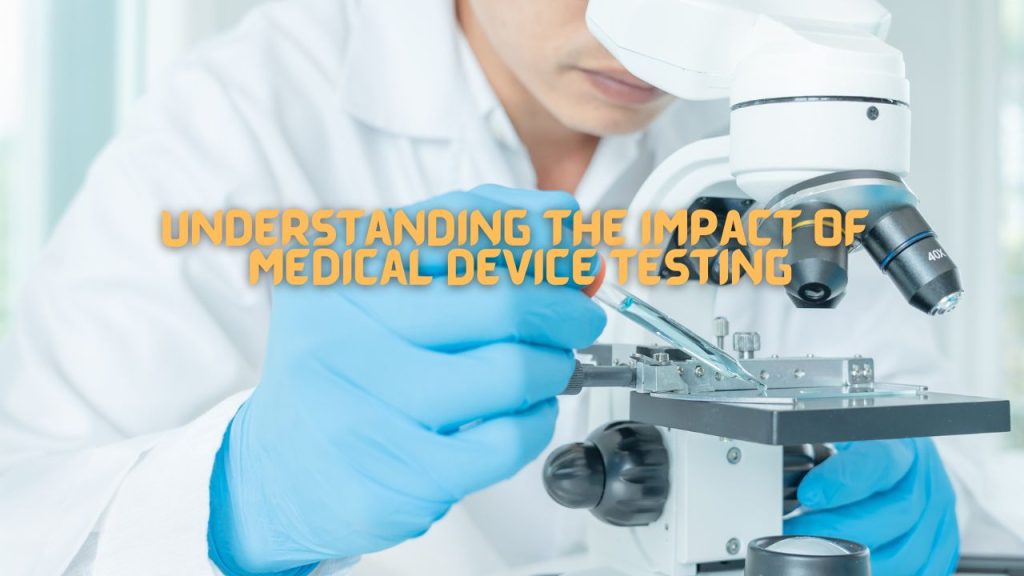The Impact of Medical Device Testing on Healthcare Quality and Patient Outcomes
3 min read
Enhancing Healthcare Quality: Understanding the Impact of Medical Device Testing
Exploring the significance of medical device testing unveils its paramount role in safeguarding patient health and improving the quality of healthcare services. As the complexity of medical devices escalates, rigorous testing becomes indispensable to ensure that these tools are not only functional but also safe for patient use. A device’s journey from conception to clinical application is meticulously charted, with stringent testing procedures at each stage. In this article, we delve into how these essential processes shape patient outcomes, healthcare quality, and the industry’s evolution.
Understanding the Impact of Medical Device Testing
Technological Advancements Influencing Medical Device Testing Protocols
Technological evolution has injected sophistication into medical device testing protocols, delivering new dimensions of accuracy and efficiency. The integration of advanced computational models, simulations, and software can now predict device behavior under numerous conditions without necessitating physical prototypes for each scenario. Such advancements lower development costs and expedite the testing phase, ultimately benefiting patients with timely access to improved medical technologies.
Automation and robotics also play a pivotal role in enhancing testing protocols. Their precision offers a level of consistency and reproducibility that manual testing cannot always guarantee. With these tools, repetitive tasks are performed with impeccable accuracy, allowing for a more nuanced exploration of device functionality and durability.
Furthermore, the emergence of 3D printing has revamped prototyping processes, allowing for rapid iteration and assessment of bespoke device designs tailored to specific patient needs. This personalized approach is transforming patient outcomes, as testing regimens can now account for anatomical variances and unique medical conditions.

Case Studies: How Improved Testing Standards Have Impacted Healthcare Outcomes
Real-world case studies highlight the tangible benefits of improved medical device testing standards. Take, for instance, the transition to lead-free electronics in medical devices. Rigorous testing ensued to ensure that alternative materials met the high-performance and reliability standards necessary for critical health applications. This preemptive evaluation facilitated a smooth industry-wide transition, mitigating risks associated with material change.
Another example is the development of wearable health monitors that continuously track vital signs. The comprehensive testing of these devices’ accuracy and durability has allowed them to become reliable components of patient management, revolutionizing preventive care and chronic condition monitoring.
In cardiovascular care, the advent of drug-eluting stents has undergone extensive testing to demonstrate their efficacy and long-term safety, contributing significantly to the reduction of restenosis rates post-angioplasty. These case studies exemplify how thorough testing underpins the successful implementation of life-saving innovations.
Future Perspectives on Medical Device Testing and Its Effects on Healthcare Industry
Looking towards the horizon, the realm of medical device testing is bound for further evolution as it adapts to the burgeoning complexity of medical technologies. Anticipation of stricter regulations and the adoption of international standards will result in a more harmonized approach, thereby facilitating global market access and elevating global healthcare quality. These developments beckon a new era of innovation where device safety and effectiveness remain at the forefront.
Personalized medicine and genomics are pushing the boundaries of device testing, as predictive analytics and biocompatibility become increasingly critical. Testing methodologies will need to evolve to address the intricacies of tailor-made treatments and diagnostics, ensuring that personalized devices align with individual patient profiles while maintaining an unwavering commitment to safety.
Overall, the integral role of medical device testing in advancing healthcare quality and patient outcomes remains unequivocal. By consistently elevating testing standards and embracing technological breakthroughs, the medical industry ensures the deployment of devices that are safe, effective, and transformative. Altogether, these advancements bring forth a healthcare environment that prioritizes patient well-being, bolsters professional confidence, and facilitates the delivery of superior care.
Follow the Out of Town Travel Blog on Facebook, Twitter, Instagram, and Pinterest if you want more health and wellness-related updates.
Read:





